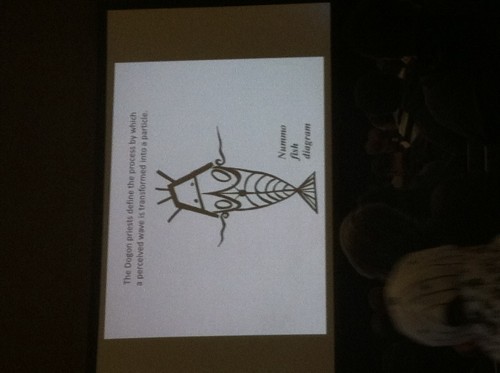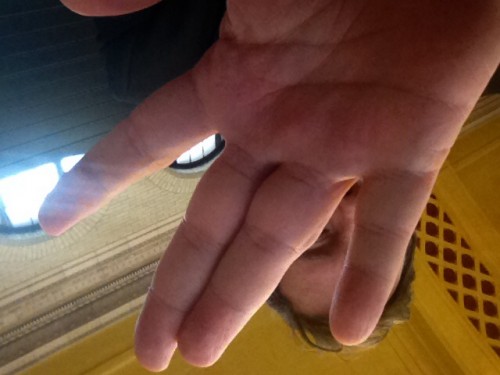I received a polite invitation from the makers of the History Channel show, Ancient Aliens. Here’s what they asked:
Dear Dr. Myers,
I’m working with Name Redacted on the show Ancient Aliens. We have a crew coming to Minnesota this week, most likely Wednesday, and we would like to find out if you would be available for an interview. We’d also like to speak with you on the phone briefly about some of the topics we’d be discussing (development of the brain, embryonic development, evolutionary development of reptiles and mammals) and make sure that they are topics you’d fell comfortable talking about. Is there a convenient time when we could speak with you on the phone?
Kind Regards,
Name Redacted
Associate Producer
Prometheus Studios
I considered it. I’m always happy to engage with people with wacky ideas — heck, if I was willing to talk to Ray Comfort, you know I’m open to conversation — but I’d only seen a few snippets of this program and heard about it by reputation. So this evening, before I replied, I tuned in to the History Channel website to get an idea of what I’d be getting into.
I was aghast. It was the same nonsense I’d seen presented at the Paradigm Symposium this past weekend, in a very glossy and professionally done format. I congratulate Prometheus Studios on their skill in turning out superficially slick and attractive programs. The content, though…the content. It was just a series of ludicrous assertions of the most absurd claims of gods and aliens and extraterrestrial conspiracies and outright nonsense. Not once did I see any skepticism expressed. Mainstream academics were treated as dogmatic ignoramuses who couldn’t see the power of totally unsubstantiated hypotheses about aliens.
I could foresee how any material I might give them would be treated. So this is what I wrote back.
I actually know quite a bit about those topics, evo devo and neuroscience are my specialties. However, having viewed a few of your programs, I doubt very much that my skeptical view — that the processes of the development of the brain are entirely natural, that they do not support any claims of extraterrestrial intervention, or that humans lack any exceptional capabilities that require a design hypothesis to explain them — would actually survive the editing process to make it on air. In fact, I notice a remarkably complete absence of any critical evaluation of the rather bizarre “theories” that tend to get promoted in your programming, so I don’t even see how my expertise could contribute.
After due consideration, I’d have to say that no, I’d rather not contribute to the program, and that there’s no point to wasting your time or mine.
Thank you for the invitation. I’d wish you well in your work, but seriously — your show is credulous, ridiculous, and offensively ignorant of any reasonable understanding of science. If you’re ever involved in programming that actually contributes to human understanding, rather than undermining it, please feel free to contact me then.
Willing as I am to have a conversation with people with wild & weird ideas, it was just too obvious that my side of the conversation wouldn’t be useful to them…and couldn’t possibly appear on their program.
Also, all of the people on their show enthusiastically promoting aliens were clearly total wackaloons, and I’d be embarrassed to be associated with them.






